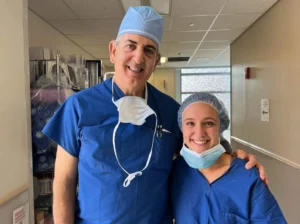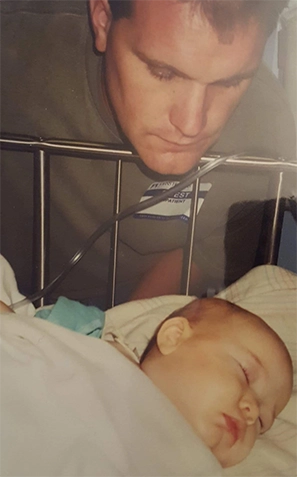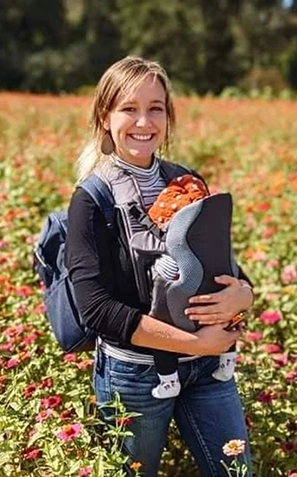Keturah’s ExcelsiusGPS™ Success Story

- May 16, 2023
- Posted in Success Stories
Keturah Forry was just six months old when she was diagnosed with a life-altering spinal condition called lipomyelomenigocele, a severe form of spina bifida. In this condition, a fatty tumor at the base of the spine protrudes through the spaces between the vertebrae, causing tension on the spinal cord. In many cases, the tumor can be seen protruding out of the patient’s back. Symptoms include extreme pain, difficulty walking, numbness, paralysis, and loss of neurological function.

In Keturah’s case, the diagnosis meant a long road of surgery and pain. At six months old, she had her first untethering surgery, which aimed to reduce or remove tissue that was preventing the spinal cord from moving freely. By the time Keturah was nine years old, she had to quit playing sports and spent most of her days lying on the couch in chronic pain.
“I struggled a lot. I felt very much like an outcast, like an outsider,” Keturah explained. “It was very difficult when I just wanted to be with my friends and join them at their birthday parties or go roller skating.”
Keturah endured five untethering surgeries in total, yet none were able to permanently help her condition. “I really started to contemplate what my future was going to look like when I graduated high school,” she said. “Would I be able to pursue my dreams in college? Would I have to go on disability?” At age 20 in 2019, she was introduced to Dr. Nicholas Theodore, a neurosurgeon at Johns Hopkins Hospital.
Dr. Theodore was able to offer Keturah an alternative solution that could change her life: a spinal shortening surgery. This procedure would utilize Globus Medical’s ExcelsiusGPS™ robotic navigation platform for spinal surgery, a technology that Dr. Theodore helped create. The surgery would remove the entirety of Keturah’s T12 vertebral body, thus shortening her spinal column and relieving the tension on her spinal cord. Additionally, Dr. Theodore would place fixation rods and screws to help keep her spine stable, utilizing Globus’ CREO™ screw system.
“The ability to not just use the robot, but also to use navigation in lockstep with robotics, is really a game changer. ExcelsiusGPS™ has both of those technologies as part of its core abilities, which makes the system so perfect for this and many other operations,” commented Dr. Theodore.
Keturah decided to move forward with the procedure with the hope that this would help relieve some of her pain. “The other possibility was being paralyzed within a couple of years,” she said.

Coming out of the surgery, Keturah’s life took a complete turn. Dr. Theodore remarked, “She did amazingly well. This is a young woman who was up out of bed on the first day after surgery walking in the halls, which is unheard of.”
Since recovering, Keturah has been pain free, something she never imagined was in her future. “I am living a life that I never dreamed I could live because of Dr. Theodore and the robot that he helped create,” Keturah said. “I didn’t know I’d be able to have children. I really didn’t think that was at all part of my future. But I’m happily married with a daughter now, and a second child along the way.” Since being interviewed, Keturah gave birth to a healthy baby boy.
In the words of Dr. Theodore, “This technology is really fundamentally changing the way surgery is done.” The Globus team is relentlessly driven to change patient outcomes for the better, and could not be happier for Keturah.
